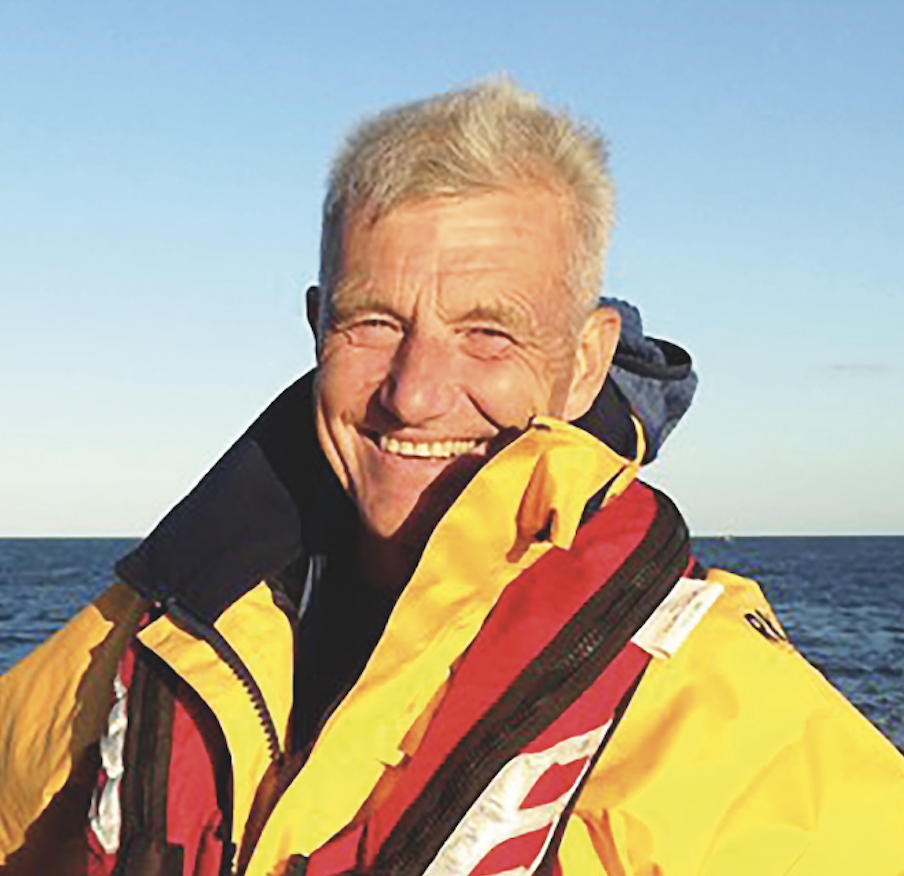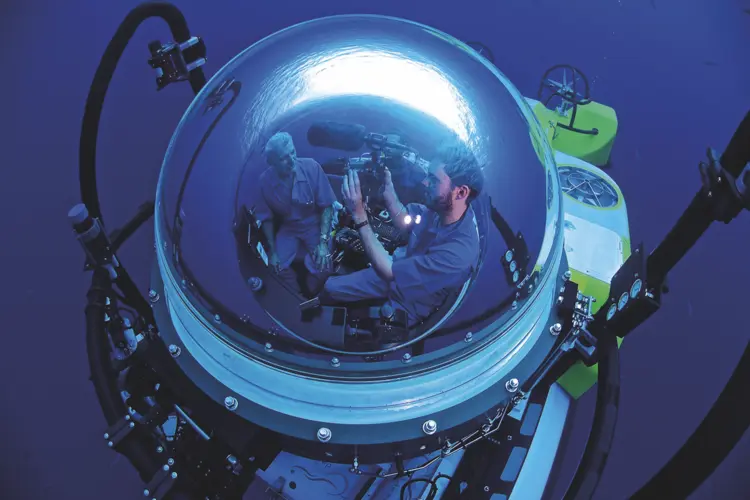
Expedition leader Paul Rose shares how science, logistics and adventure come together on some of the world’s most ambitious explorations

Paul Rose’s travel insights
• Plan your travels like an expedition – research a theme or topic that interests you before you go and look for ways to connect with it on the ground
• For inspiration, attend the RGS Explore Weekend – you may find your way onto an expedition, or simply come away with a new perspective on travel
By
Last year, scientists found the world’s largest coral outcrop – a colossal organism, formed from nearly a billion individual coral polyps and large enough to be seen from space. It was the ‘ultimate dream’ to make such a significant discovery, says Paul Rose, expedition leader of the National Geographic Pristine Seas programme.
Rose joined the Pristine Seas team in 2013. Their goal is to explore and protect the last wild places in the ocean – Rose acts as ‘science support’. It’s a role that has taken him to islands around the world, from the Solomon Islands, where the coral was discovered, to the Azores, French Polynesia and Franz Josef Land in the icy Barents Sea.
Enjoying this article? Check out our related reads…
‘Say you’re a scientist, or a group of scientists, who have a big, hairy, ambitious hypothesis that you’ve developed in a lab or classroom,’ he says. ‘It’s my job to turn that hypothesis into icebreakers, helicopters, remote camps full of highly skilled people in challenging places, divers, climbers, doctors – you name it.’
In his younger years, Rose was driven by the thrill of big, physically demanding expeditions – and the logistical challenges that came with them. ‘I wanted to climb that mountain, dive that ocean, do that very complicated thing. Anything that, to my mind, looked like it would be tough.’ That drive took him – and his young family – to the USA, where he trained as a mountain guide and professional diver, and led training programmes for the US Navy’s emergency-response teams. For eight years, he served as base commander of the Rothera Research Station in Antarctica, where he helped NASA to test the Mars lander on Mount Erebus.
At some point, his focus shifted to projects where he knew he could have the biggest impact. For that reason, much of his work has been in the Arctic and Antarctica, where he says the questions scientists are asking, and the results they find, are of enormous global importance. ‘It’s wonderful to be a non-scientist helping on the front line – you can’t beat it.’

While expeditions need explorers and scientists, they also need drivers, chefs, mechanics, doctors, filmmakers and people from other walks of life. If you’ve ever wondered how you could use your skills to make a positive difference, Rose recommends attending the Royal Geographical Society’s Explore Weekend in October.
The annual event offers aspiring and seasoned explorers practical advice, networking opportunities and inspiration for planning expeditions, fieldwork and other purposeful journeys. ‘There’s an indefinable magic that happens at Explore,’ says Rose. ‘You might come along and say: “Hey, I’m John Doe and I’m a [insert job here]. Is there any chance of joining an expedition in the next few years?” And someone will grab you with big open arms and say: “Yes!”’
Rose suggests that even travellers who aren’t looking for the challenge of an expedition can have a more rewarding experience by approaching any holiday with a similar mindset. ‘Do a bit of pre-departure planning,’ he says.
‘You can pick a topic along your lines of interest – maybe it’s history and exploration, maybe it’s green energy – and research it before you go. Then, while you’re there, keep those things you’ve learned in mind so you can “ground truth” it for yourself.’ Once home, he explains, you’ll realise that you’ve learned more about the destination than you might have otherwise – while still having time to relax.
You can even share what you’ve learned with friends, a school group or colleagues – especially if it has helped influence future travel decisions, or other choices in your life. That’s a big part of being an informed, responsible traveller, says Rose.




